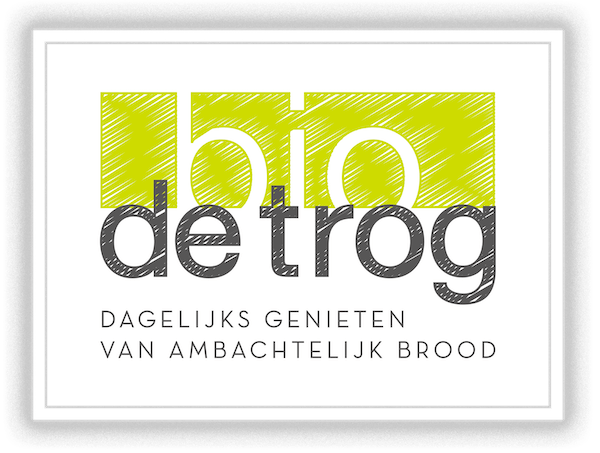Blog
Ancient grains - Alternative grains
01/03

Learn more about the history and characteristics of ancient grains!
For centuries, ancient grains have been cultivated and used in bread and other products. Our ancestors cultivated them in the most natural way possible, so they are completely true to nature and have never been genetically manipulated. At Bio De Trog, we use these ancient grains to bake bread in the traditional way. That means that they all retain their healthy and typical nutritional values and their specific flavours and aromas.
Ancient grains are known to have many health-giving properties. For example, they are anti-inflammatory and contain antioxidants, vitamins B and E and minerals such as zinc, magnesium; iron and potassium. They also contain fibres, which are known to be good for digestion.
A varied consumption of grains can therefore improve your metabolic functions. It also brings variety to your daily breadboard, of course. And we don't intend to stop there: we'll continue to create a range of organic bread from ancient grains for you, baked with passion and love.
Buckwheat
For centuries, buckwheat has been cultivated on a large scale in Europe. Buckwheat contains magnesium, potassium and phosphorous. It contains no gluten in itself, but buckwheat bread is usually made in combination with wheat in order to give the dough sufficient structure. Buckwheat gives the crust a very distinctive and delicious flavour. The crumbs also take on more colour when buckwheat is added.
Bio De Trog bread suggestion
- based on wheat flour
- 100% stone-ground flour
- sourdough cake with no yeast added
- made with boiled buckwheat grain, raisins and oatmeal mixed into the dough
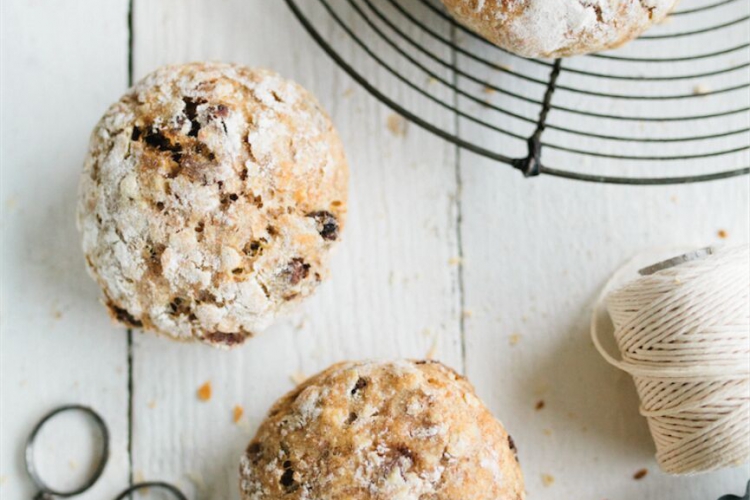
Kamut
Bread made from Kamut has a very distinctive colour and flavour (bordering on mildly sweet and nutty).
Kamut was cultivated in Mesopotamia and Egypt in ancient times. Kamut is actually an ancient wheat variety that naturally contains high levels of selenium, zinc and magnesium. Selenium is known to protect against cardiovascular disease, and some studies have found that it may also be effective against cancer.
Our suggestion:
0032 BIO kamut Khorasan bread 600g
- based on Kamut flour (no added wheat)
- yeast-sourdough bread
- baked on a stone floor
- bread with a distinctive colour and flavour (mildly sweet and nutty)
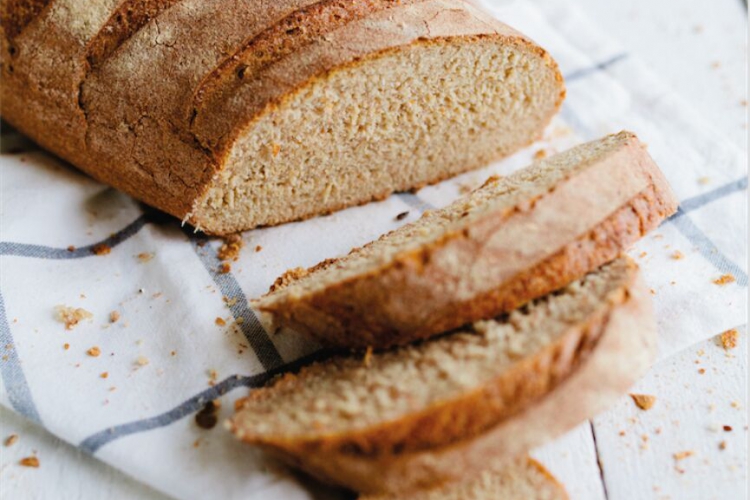
Spelt:
Spelt (triticum spelta) is not a wheat type (triticum sativa) and is one of the original, natural grains known to man. Recent research projects in Europe proved that spelt was cultivated here more than 9,000 years ago. Spelt is an ideal grain for organic cultivation because it requires very little fertilisation and is very resistent to diseases. Spelt naturally contains magnesium and iron. This ancient grain also contains more essential fatty acids and raw fibres than ordinary wheat. People who are oversensitive to wheat gluten generally agree that they can more effectively digest products that contain spelt and can tolerate it better.
Our suggestion:
0511 BIO pure spelt bread 500g
- pure spelt with no added wheat
- sourdough bread (sourdough based on spelt) with no added yeast
- form bread
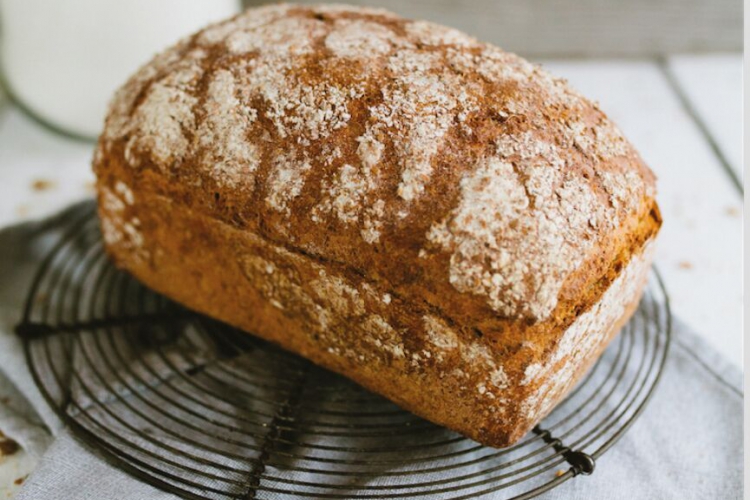
Oatmeal
Oatmeal has been cultivated since 7000 BC and naturally contains cobalt, magnesium, iron, carotene and vitamins K – E – B1 – B2 – B6.
Oatmeal bread can be baked in combination with wheat-sourdough or wheat-yeast by adding oat flakes, for example.
Our suggestion:
0005 BIO oatmeal sourdough bread 800g
- based on wheat flour
- 100% stone-ground flour
- sourdough bread with no added yeast
- baked on a stone over floor
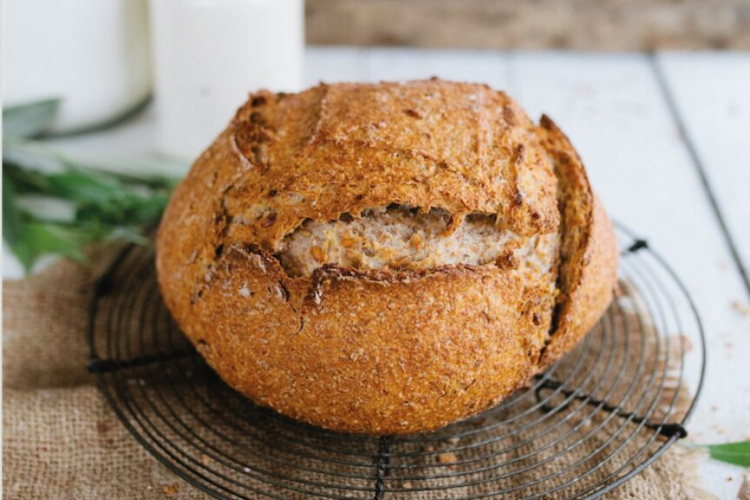
Rye
Ideal for alternating your diet.
Rye dates back to the Central European Bronze Age (1800 to 1500 BC). The fibres in rye promote good digestion.
Our suggestion:
- based completely on rye flour
- sourdough bread with a little yeast (<0.5%)
- risen in wooden baskets, baked on a stone oven floor
- distinctive compact rye bread with slightly bitter crumb and aromatic crust.
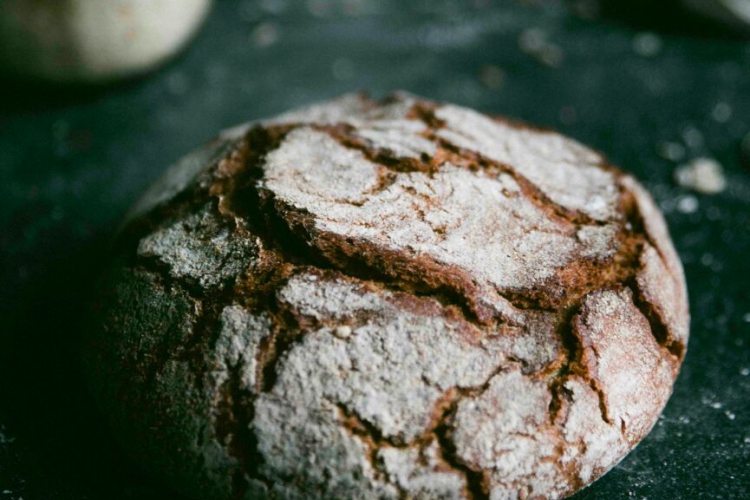
Other bread types with ancient grains from Bio De Trog:
- 0037 BIO oat flake bread 500g
- 0038 BIO spelt flour bread 800g
- 0050 BIO spelt bread 800g
- 0052 BIO spelt-kamut Khorasan bread 400g
- 0161 BIO kernel and seed bread 600g
Keep checking our website for new products with ancient grains!
